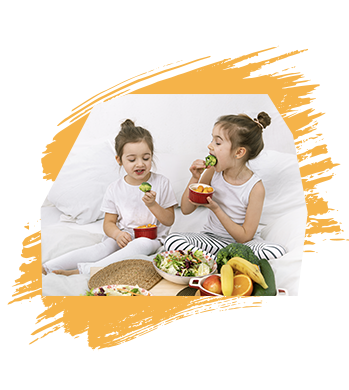Leading nutrition experts have offered their top tips for healthy and hassle free meals.
With families across the UK now staying at home, it means we are having all of our meals and snacks in the house, instead of at work, school or out and about.
And so, to help take the stress out of meal planning in these unprecedented times, the British Nutrition Foundation (BNF) is able to lend a hand in the kitchen, providing easily digestible tips and inspiration for making healthy meals.
Sara Stanner, Science Director at the BNF, commented: “As a society, we are all trying our best to navigate through these unfamiliar times; taking care of our diet, health and mental wellbeing is just as important as ever. It is understandable that many of us, alongside trying to work and look after children who are at home, may be struggling to decide what to make or how to use that packet at the back of the cupboard. However, with a little creative thinking, we can adapt what we cook and eat in response to the current situation, as we have had to do with so many areas of our lives already.”
The BNF’s stay-at-home meal tips include:
- Shop for variety. Having a variety and balance of foods is the foundation of a healthy diet. If you’re shopping, look for a selection of foods across the main food groups, including fruit and vegetables, starchy foods, such as pasta and grains, protein foods, including beans and lentils, and dairy or plant-based alternatives. There may be items available that you don’t usually buy and now is a great time to give them a try.
- Use up forgotten ingredients: Don’t forget what you may already have at the back of your kitchen cupboard as now may finally be the time to utilise that pack of lentils or can of mackerel that you never got round to eating – you could even try doing an inventory of what you’ve got so you can look for recipes and make a plan. If you’ve got a few packets with just a little bit left of foods, like pasta or rice, think creatively to use them up – for example, using the last bit of rice to bulk out a homemade soup.
- Substitute pasta, rice and grains: We all know that pasta and rice are popular staples and, as such, have sometimes been selling out quicker than other products. Try using what is available, for example, bulgur wheat, quinoa, barley, couscous and noodles. Prepared packs of grains may also be easier to find on the shelves and, although usually more expensive than their dried counterparts, can provide a quick and convenient meal option.
- Go nuts: Nuts butters have a good source of micronutrients, such as magnesium, potassium, iron, zinc, vitamins E and B, and they are also high in fibre too.
- Meal planning: Although a large portion of the UK is now spending time at home, this does not necessarily mean more spare time is available to them. With many people now juggling working from home, looking after relatives and home schooling, trying to find the time to prepare meals can be a challenge. Making a plan for what you’re going to have for each meal for the next few days, or for the week, could really help you work out how best to use the ingredients you’ve got, and what else you may need. If you’ve got the space to do so, cooking and freezing portions using the ingredients you have available to you is a great way of managing your meal preparation around whatever is going on in the house, while cutting down on waste too.


